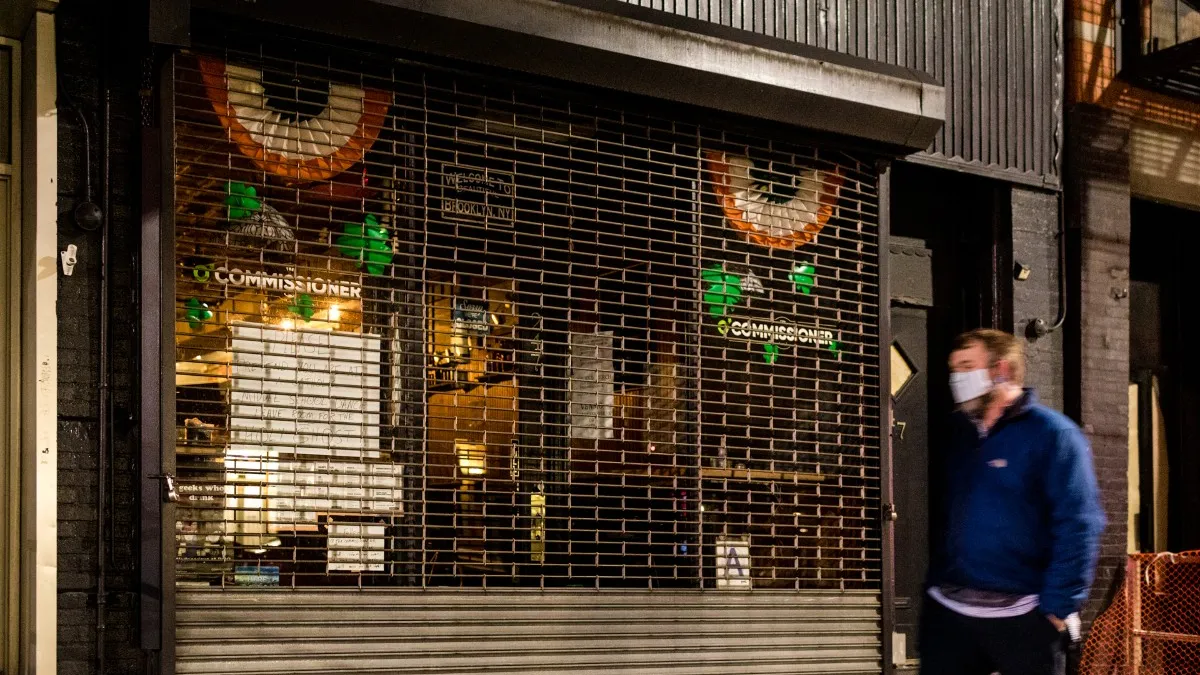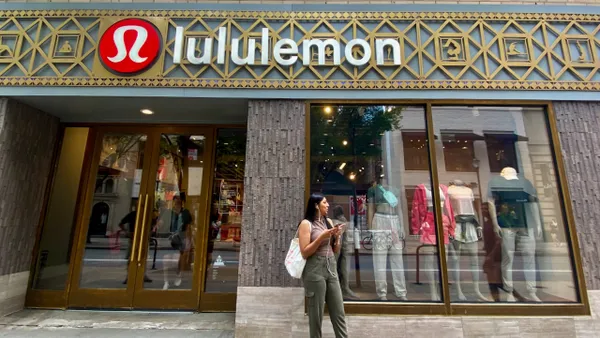Dive Brief:
- Quarantine-related lockdowns have shifted consumer behavior in three essential ways that will endure even as anxieties subside, according to Kantar's latest COVID-19 Barometer. Increased e-commerce shopping, a desire for good value on products and a lift in local consumption are among the areas marketers should be looking into, the firm said.
- While some 73% of consumers still feel anxious, anxiety levels appear to be coming down from their peak in mid-March. More than 40% of people said they have ramped up their exercise, reading or sleeping habits to cope with pandemic-related stress. More than half said they're eating healthier and trying new dishes, with 64% of people doing so in homes with children. Additionally, 20% of consumers are avoiding alcohol in what's been dubbed "Drysolation," Kantar said.
- Some 32% of consumers have increased their e-commerce spending during the pandemic, and a third expect to make more purchases in the future. Meanwhile, the report revealed that 45% of households have already seen their income fall during the pandemic, and 26% expect their income to be hit in the future. Nearly half of respondents said they think companies should offer discounts during this time of economic downturn.
Dive Insight:
Kantar's latest report gives marketers the current temperature of the American consumer and hints at the behaviors that could prove long-lasting even as lockdown orders are relaxed or lifted and some normal operations resume.
People appear to be getting less nervous about the public health crisis generally, and are settling into homebound routines that help them cope. Growing consumer confidence could portend more spending, though it might benefit some categories more than others. A surge in home cooking and an openness to trying new recipes represent an opportunity for CPG brands to engage consumers. Avocados From Mexico, for instance, celebrated Cinco de Mayo by creating an interactive recipe game with cooking ideas featuring avocados.
On the flip side, the trend of "drysolation" identified by Kantar is not good news for beer companies, which are already taking a hit from the closures of restaurants and bars. However, the trend could double as a positive way for brands to promote non-alcoholic beverages such as sparkling waters and juices. Brands like sparkling water brand Spindrift, which recently raised $29.8 million in funding, stand to benefit from this behavior.
As the pandemic slowly shakes out, brands should expect online ordering to continue as consumers appear more likely to limit their outings to physical stores to avoid exposure to the coronavirus. However, many consumers will remain cost-conscious this year, as unemployment continues to rise and the economy remains in a downturn.
Brands that can offer good deals on products may do better than those with high-cost nonessentials not seen to offer significant value. This follows another recent study from Survata that found that, although consumers are pinching their wallets this year, they still prefer name brands over private labels.














